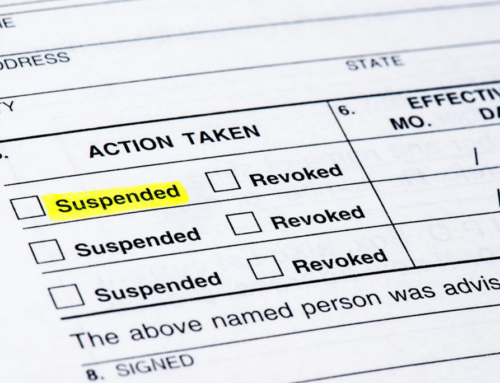 Revocation of your driver’s license is common after certain offenses, such as DWI, repeated traffic violations, driving without insurance and even failure to pay child support. The legal term for this is Administrative License Revocation, or ALR. If you are caught driving on a suspended license, you can be charged with a Class C misdemeanor. This comes with a maximum fine of $500 and no jail time. However, certain situations can result in increased penalties. Cases involving repeat offenders, uninsured drivers, DWIs or serious injuries can result in up to a year of jail time and $4,000 in fines.
Revocation of your driver’s license is common after certain offenses, such as DWI, repeated traffic violations, driving without insurance and even failure to pay child support. The legal term for this is Administrative License Revocation, or ALR. If you are caught driving on a suspended license, you can be charged with a Class C misdemeanor. This comes with a maximum fine of $500 and no jail time. However, certain situations can result in increased penalties. Cases involving repeat offenders, uninsured drivers, DWIs or serious injuries can result in up to a year of jail time and $4,000 in fines.
The state must be able to prove that you were in fact the person who drove under a suspended license. Typically, it must also prove that you were given notice of suspension or revocation, which typically occurs when you first commit the offense that resulted in ALR.
I Need to Drive – Am I Really Not Allowed to Drive at All?
In Texas, drivers can obtain an Occupational or Restricted license. This allows you to commute to work and back during your license suspension. Additionally, you are allowed to drive to complete necessary household duties, like getting your kids to school or picking up groceries. To get one, you need to apply for one at the Texas Department of Public Safety location most convenient to you.
When you apply for the license, you will need to provide DPS with a description of the routes you use to commute to work and any other necessary locations. You will also need to provide the times you plan on using your vehicle.
Not every driver will be eligible for one of these licenses. Usually, if your license was suspended for medical reasons or failure to pay child support, you will not be eligible.






